Cats usually are pretty playful and active. However, if your cat is not acting the way it normally does, is making strange noises, not eating anything, or is just sitting at a corner, then your cat might be sick, and you shouldn’t ignore it. Cats often contract diseases and skin problems that make them sick, and if they are not looked after, these diseases can also prove fatal. Therefore, before taking your cat to a vet, it is crucial to do some self-diagnosis to focus on your cat’s health problem.
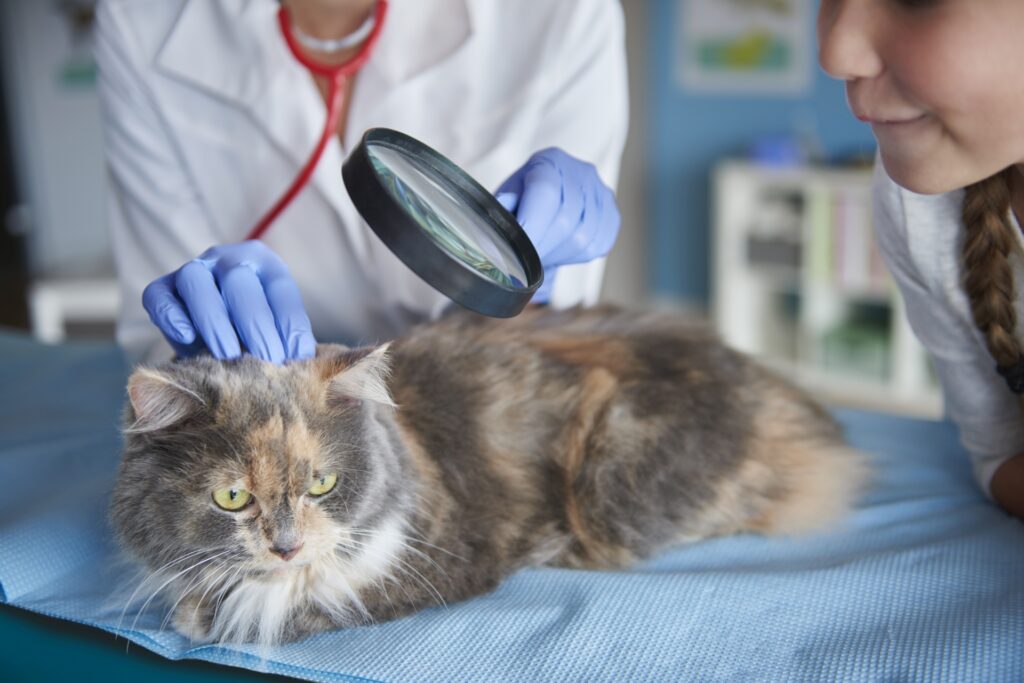
1. Rabies
It’s always recommended to get your cat checked for rabies and get it vaccinated. Rabies can be contracted by all animals, not just cats. This virus targets your cat’s brain and spinal cord when it gets bitten by an infected animal. This disease can lead to your cat being aggressive, and you can also observe foam coming out of its mouth, along with the involuntary movement of muscles. Sadly, the fatality rate is almost 100% when the symptoms start to show, so don’t wait for that. Get your cat checked and vaccinated for rabies as soon as possible. Also, make sure that your cat doesn’t go out on its own a lot and monitor its interaction with stray animals.
2. Hyperthyroidism
While sick can be less active and energetic, things can be quite the opposite if your cat is suffering from hyperthyroidism. It’s an endocrine disease in which cats suffer from benign growths in their thyroid gland as it increases in size and function. The aftermath of this abnormality is the increase in the concentration of your cat’s thyroid gland hormones. Your cat will have a much higher appetite, but instead of gaining weight, it’ll lose weight. Your cat will also be a lot more energetic and can also get aggressive. You can take your cat to a vet, who will prescribe you the necessary tests and medications for your cat.
3. Pancreatitis
If you observe symptoms like vomiting, fever, lack of appetite, adnominal pain, and diarrhea in your cat, chances are that your cat might be suffering from pancreatitis. In this disease, your cat’s pancreas suffers from inflammation. In this health condition, your cat’s liver and intestines can also get inflamed. Even though the causes of this disease are not confirmed, according to statistics, cats suffering from pre-existing health conditions like diabetes and inflammatory bowel are at a higher risk of contracting pancreatitis.
4. Lymphoma
Even though cats can suffer from many types of cancers, Lymphoma is the most common one. Apart from the tumor that indicates cancer, some common observable symptoms include abnormal weight loss, vomiting, diarrhea, and anorexia. If you witness any of these symptoms, take your cat to a vet immediately, as feline cancer cases often go unnoticed as these symptoms are confused for less dangerous diseases. Early diagnosis can help your cat fight off this disease, and ignorance can lead to fatality.
5. Diabetes
Diabetes is also a very common disease in cats. It’s a condition in which cats are unable to produce adequate amounts of insulin or have an insufficient insulin response. Diabetes is nonetheless a grave concern. Some visible symptoms through which you can self-diagnose diabetes before taking your cat to a vet include weight loss, increase in urination and thirst, lethargic behavior, dehydration, sweet-smelling breath, and also a change in appetite. Diabetes in cats is usually caused by obesity, genetics, or any pancreas-related disease. Timely treatment can help your cat go into remission.
6. Ear Mites
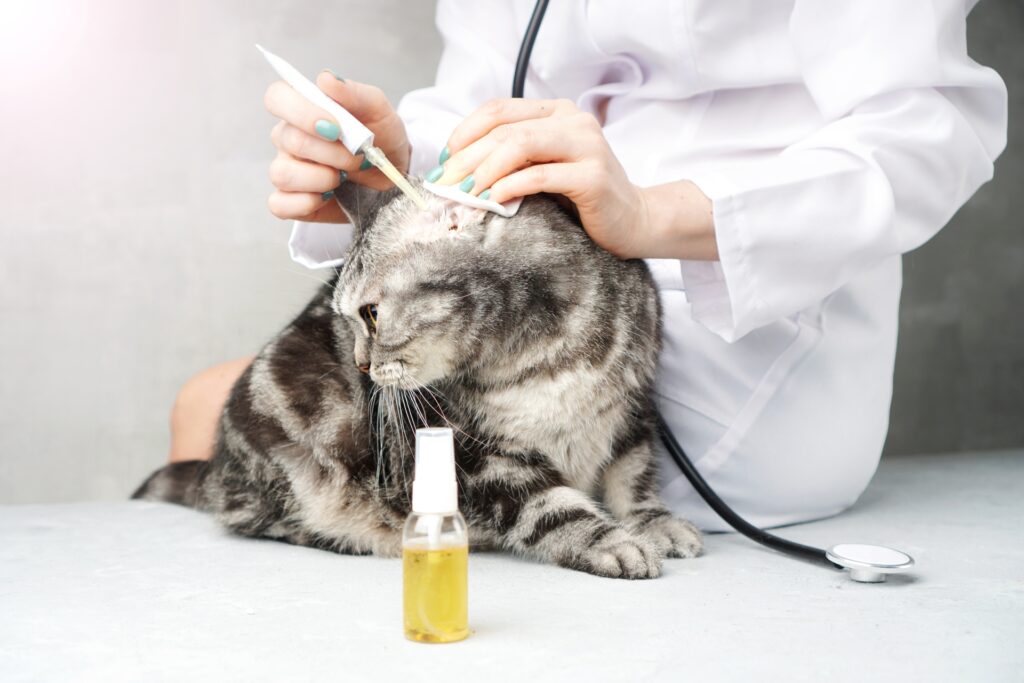
This is a cat health problem that is common with kittens and young cats. These are tiny particles that live inside your cat’s ear canal. If you observe your cat itching its ears or grooming it by licking it, your cat’s ear might have ear mites in it. Ear mites can cause hearing disorders and can also cause bacterial infections inside your cat’s ears. You can wipe out ear mites from your cat’s ear using a washcloth. To avoid the further growth of these parasites inside your cat’s ears, take your cat to a vet, as they will prescribe you medications to get rid of these tiny parasites.
7. Food Allergies
Cats can suffer from itchiness or skin irritation if they have a pre-existing food allergy. Other than these symptoms, your cat can also face constipation, vomiting, and diarrhea in severe cases. Always ask your vet or your cat’s previous owners about your cat’s allergies, and then plan your cat’s diet accordingly to avoid unnecessary health issues. Food items like beef, chicken, fish, and dairy are some of the most common allergy causers. It is not recommended to implement immediate dietary changes in your cat’s diet. However, slowly transitioning your cat towards a healthy diet is a better option.
8. Tapeworms
Tapeworms are also found in cats, and they can cause serious health issues in your cat’s body. These are ingested by cats during grooming due to the presence of fleas in their fur coat. The symptoms of tapeworms in cats cannot be observed by observing their visible health as it requires a blood test for accurate diagnosis. When tapeworms enter a cat’s stomach, it can cause them to vomit. Take your cat to a vet if it’s vomiting excessively due to cat worms symptoms.
9. Constipation
Constipation is one of the most common health problems suffered by cats, and it leads to abdominal pain during defecation. If your cat is passing small diarrhea-like feces that contains blood, then your cat can be suffering from constipation. Other visible symptoms include reduced appetite, vomiting, and lethargy. If you witness any of these symptoms and observe abnormalities in your cat’s feces, take your cat to a vet.
10. Fleas
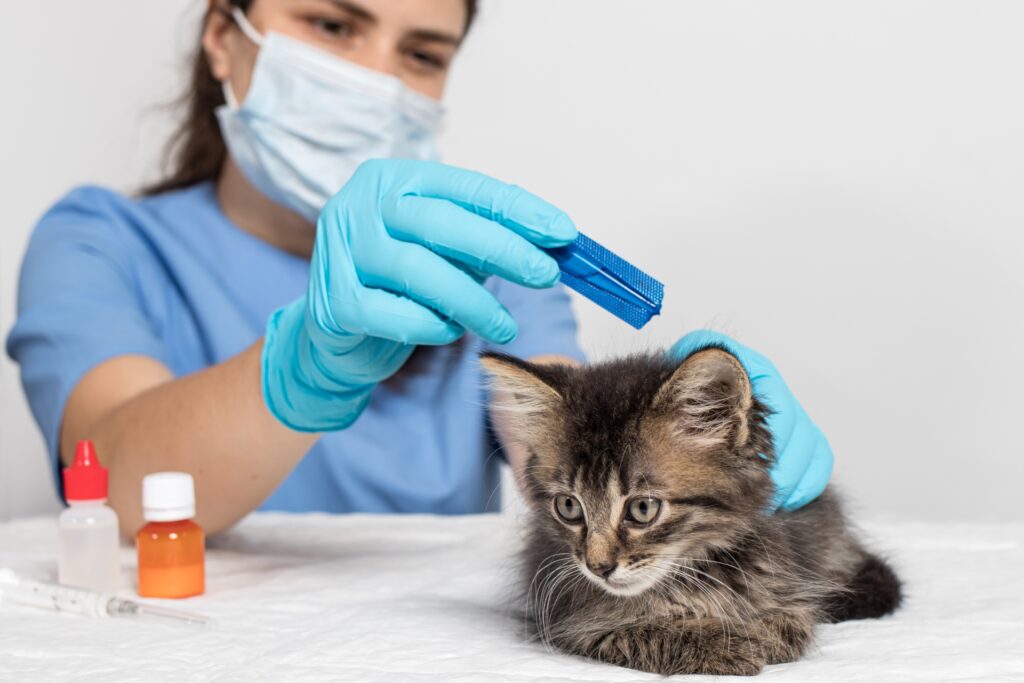
Cat fleas are the most common type of flea species, and it’s tough to remove them from your cat’s body. These parasites live on your cat’s blood and contaminate your cat’s fur coat in the process. Other than that, fleas cause many skin problems and also carry many dangerous bacteria and viruses. The best way to keep your cat away from fleas is to bathe it daily, especially if it’s a longhair breed. Also, consult a vet as they will prescribe the best flea prevention products for your cat.
Suggested readings:
Even though it is good to self-diagnose, you should always visit a vet for better advice regarding your cat’s health issues.

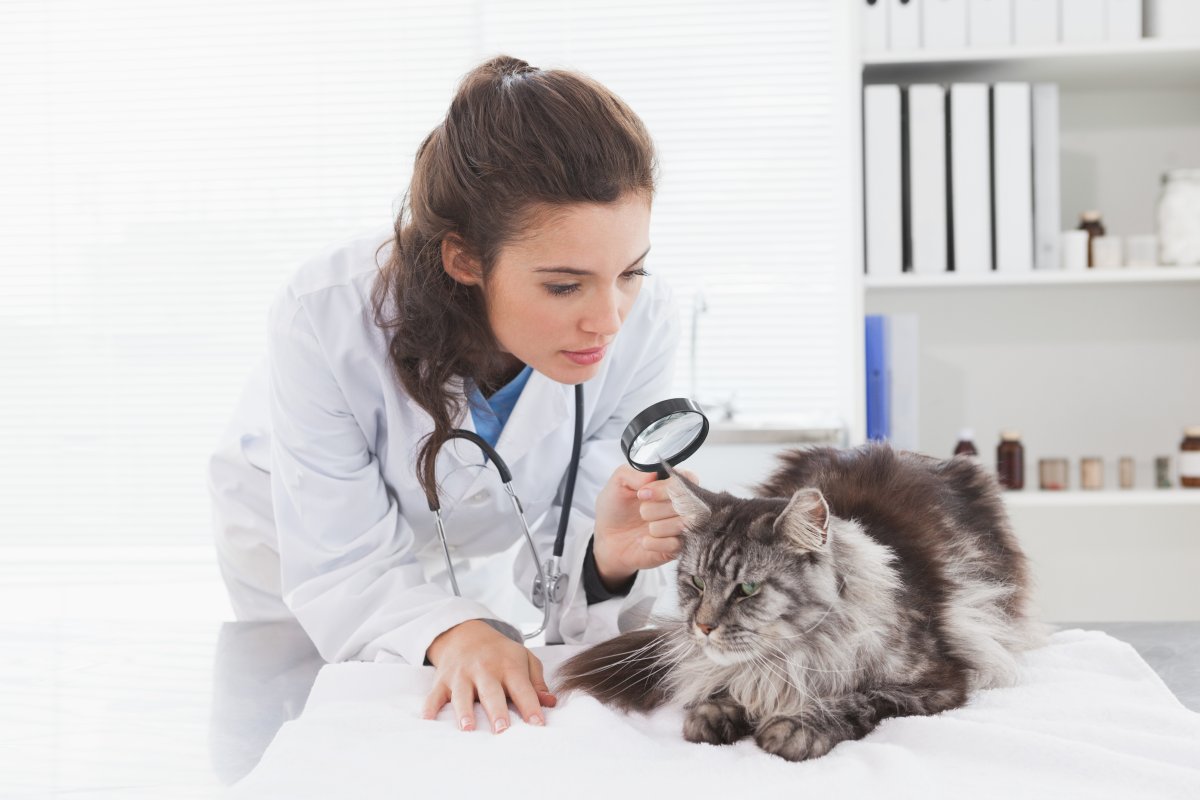





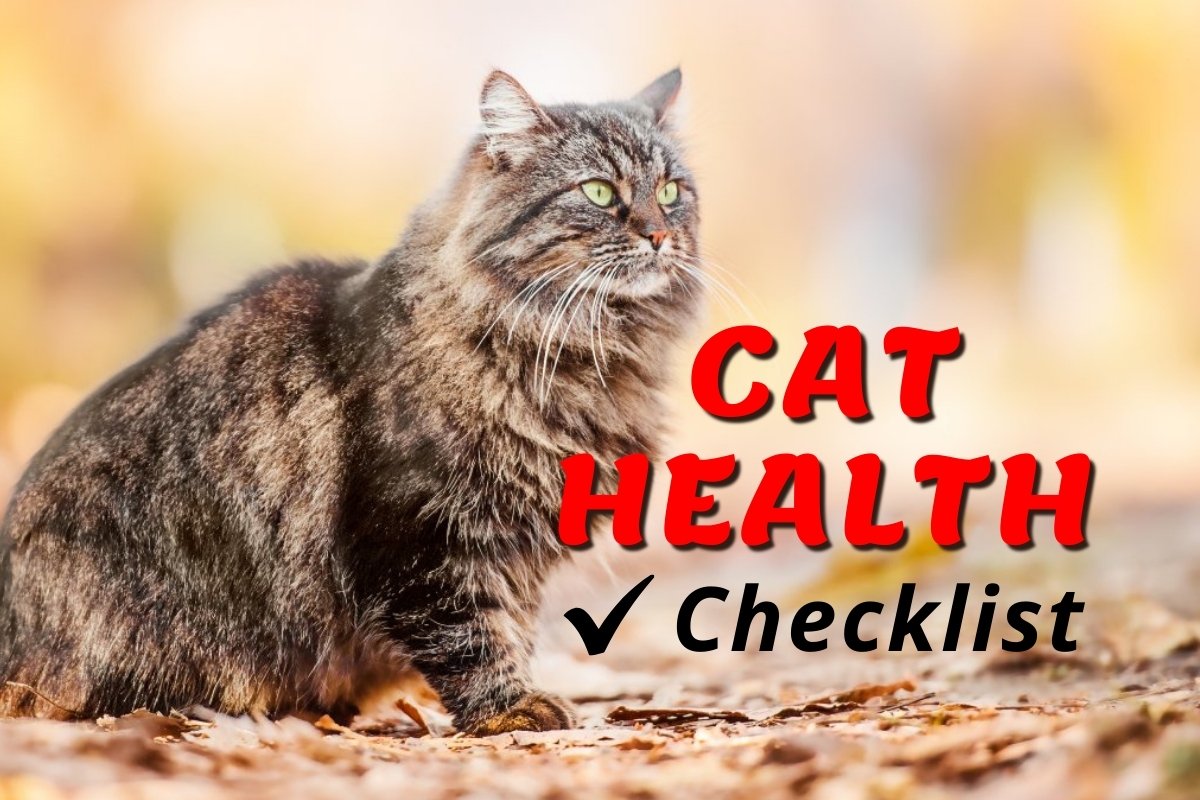
4 comments